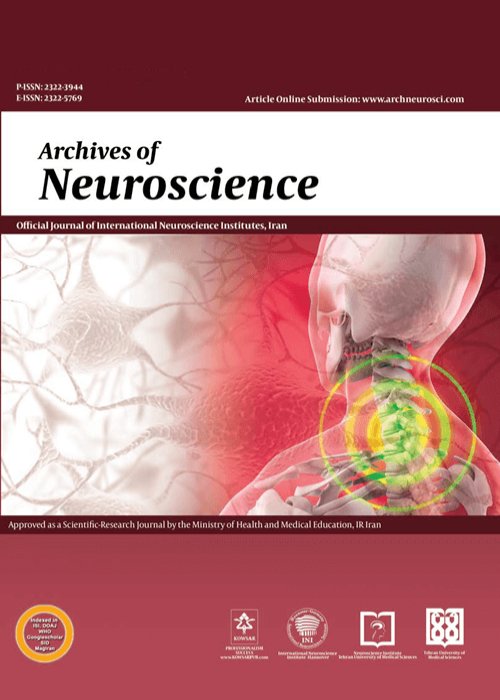Fingolimod for Multiple Sclerosis; Mechanism of Action, Safety and Toxicity
Author(s):
Abstract:
Context: From the year 2010, for patients with highly active relapsing-remitting (RR) multiple sclerosis (MS), fingolimod could be justified for prescription as an oral medication. Previous published clinical trials identified that the drug could reduce auto-aggressive lymphocyte infiltration into the central nervous system (CNS) through the blood brain barrier (BBB), by stoppage of lymphocyte passage from lymphoid tissues.
Evidence Acquisition: The aim of this study was to provide a comprehensive review related to the pharmacotherapy of fingolimod for MS, by gathering data related to previous clinical and laboratory trials. The key words relevant to the topic were searched through the United States national library of medicine. Significant manuscripts associated with fingolimod pharmacotherapy for MS were nominated and studied completely.
Evidence Acquisition: The aim of this study was to provide a comprehensive review related to the pharmacotherapy of fingolimod for MS, by gathering data related to previous clinical and laboratory trials. The key words relevant to the topic were searched through the United States national library of medicine. Significant manuscripts associated with fingolimod pharmacotherapy for MS were nominated and studied completely.
Results
In patients with MS due to multifactorial pathogenesis, in both white and gray matter of CNS, multifocal lesions might be recognized. CD4 and CD8 effector T cells, sensitive to CNS myelin antigens, are assumed to facilitate the preliminary stage of injury formation. Fingolimod -therapy in patients at the RRMS phase, reserve lymphocyte egress from lymphocyte nodes and disturb its recirculation in the CNS. Previous clinical trials confirmed that once-daily oral administration of 0.5 mg fingolimod for one year causes a decrease in annualized relapse rate. Reduction in the annualized relapse rate has been reported, related to the study of 249 patients with RRMS. Reduction in disability progression after three and six months has been reported, respectively. The numbers of new or newly enlarged T2 lesions were shown to have reduced. Head cold, headache, fatigue, macular edema, herpes and zoster infections, bradycardia, relapse and basal-cell carcinoma have been reported as side-effects related to finglimod-therapy for MS.Conclusions
However, fingolimod-therapy could provide flexibility regarding the ease of oral use for patients with RRMS, but rationalization related to the prescription are largely based on inter- and intra- individual variation. Due to unpredictability in disease manifestation and its progression, caution must be taken with drug prescription. Additional studies based on advanced pharmacotherapy trials appear to be valuable..Keywords:
Language:
English
Published:
Archives of Neuroscience, Volume:3 Issue: 3, Jul 2016
Page:
5
magiran.com/p1582403
دانلود و مطالعه متن این مقاله با یکی از روشهای زیر امکان پذیر است:
اشتراک شخصی
با عضویت و پرداخت آنلاین حق اشتراک یکساله به مبلغ 1,390,000ريال میتوانید 70 عنوان مطلب دانلود کنید!
اشتراک سازمانی
به کتابخانه دانشگاه یا محل کار خود پیشنهاد کنید تا اشتراک سازمانی این پایگاه را برای دسترسی نامحدود همه کاربران به متن مطالب تهیه نمایند!
توجه!
- حق عضویت دریافتی صرف حمایت از نشریات عضو و نگهداری، تکمیل و توسعه مگیران میشود.
- پرداخت حق اشتراک و دانلود مقالات اجازه بازنشر آن در سایر رسانههای چاپی و دیجیتال را به کاربر نمیدهد.
In order to view content subscription is required
Personal subscription
Subscribe magiran.com for 70 € euros via PayPal and download 70 articles during a year.
Organization subscription
Please contact us to subscribe your university or library for unlimited access!


